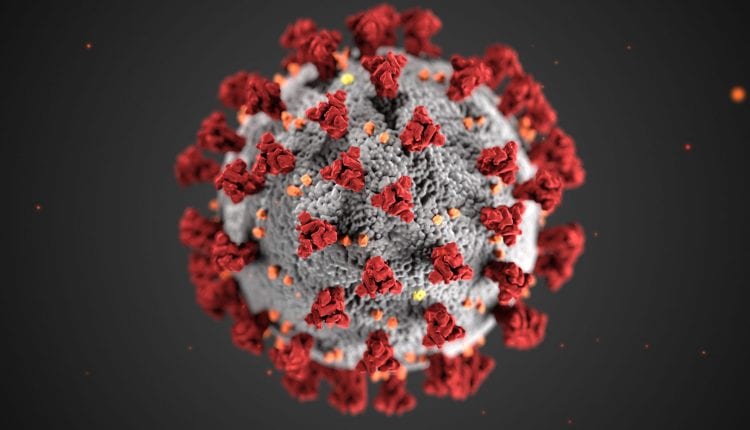
Researchers are warning that even after recovering from coronavirus infection, patients can suffer symptoms for months – so-called ‘long COVID’.
The Royal College of GPs is calling for better support for ‘long COVID’ patients, who can suffer chronic illness for months after the infection has faded.
At the moment fewer than 12 percent of 86 NHS care commissioning groups contacted by the BBC said they were running ‘long COVID’ support services.
Tim Spector, professor of genetic epidemiology at King’s College London and leader of the Covid Symptom Study app, says that around 300,000 people in the UK have reported symptoms lasting for more than a month, and around 60,000 people have been ill for more than three months.
As these coronavirus sufferers are not in hospital many of them will not have been tested, and are unable to access support services.
See also: “Don’t Kill Your Gran” – Young People Blamed for Coronavirus Spike
Support group
A Long COVID support group working in conjunction with the UK Sepsis Trust offers resources including a patient information pack from the Homerton University Hospital NHS Foundation Trust
The group website says: “We are keen that people keep an open mind about what is occurring in those with persisting symptoms of Covid-19, and so we are trying to avoid the use of existing terms (e.g. post viral fatigue or ME/chronic fatigue syndrome) until more is known.
“Learnings from other communities may have relevance to Long
Covid, but it is important that persisting symptoms of Covid-19 have research of their own. We hope that research into Long Covid may also be of help to those affected with other chronic conditions.
See also: Antibody Cocktail REGN-COV2 Targets Coronavirus
“While some medical professionals may understand that PVF (post viral fatigue) can encompass more than fatigue, use of this term may alter the perception of the range and severity of symptoms in the eyes
of the public and, importantly, employers. People may experience symptoms that have persisted since the outset of their illness, other symptoms may emerge many weeks or months later, and many people
experience a relapsing-remitting pattern. For this reason we are trying to avoid the prefix of “post-” until further research has been completed.
See also: Dr Hilary Jones Warns of Potential Spike in Coronavirus as New Lockdown Looms
Diverse symptoms
Symptoms are diverse and can span respiratory, cardiovascular, neurological, dermatological or renal issues, some of which can be serious (e.g. strokes, pulmonary embolisms). Some of us don’t have fatigue
at all. We are keen that people align around the term Long Covid, as this keeps things open.”
Symptoms of ‘long COVID’ identified so far include:
- Exhaustion
- Vomiting
- Diarrhoea
- High temperature
- Hair loss
- Chest pain
- Hallucinations
- Lasting breathing problems
- Purple toes
- Chills
- Disorientation
- Muscle/body ache
- Insomnia
- Arrhythmia (a problem with the rate or rhythm of the heartbeat)
- Tachycardia (where the heart beats more than 100 times per minute)
- Cognitive problems – memory loss, confusion
Martin Marshall, GP and chair of the Royal College of GPs, said: “Without doubt, we know that there’s going to be a growing number of people who have significant and worrying symptoms of ‘long COVID’.
See also: Child Obesity ‘Progress Slow’ Says Report
“A small proportion, but in total a large number, will require specialist advice.
“So we really do need to see a growing number of post-Covid clinics being established.”
NHS England’s new Your Covid Recovery website offers personalised support for all patients recovering from Covid-19.
The UK government and NHS England say there will be new and strengthened rehab centres and community services in every part of the country.
In Wales, community and specialist rehabilitation programmes are likely to be the forum for offering Covid care.
The Department of Health in Northern Ireland says it is assessing the needs of Covid patients who have left hospital to highlight future work, while Scotland is planning to provide “high quality person-centred rehabilitation in different settings”.
See also: Creating Brighter Futures For Those With Fetal Alcohol Spectrum Disorder
Risk factors
Speaking on LBC Radio, Health Secretary Matt Hancock has said that some people were still experiencing symptoms six months after contracting the virus.
Researchers in Glasgow have launched a study examining the long-term health impacts of Covid-19, aiming to measure prevalence and risk factors of long-term health and psychosocial consequences of the disease.
Dr Janet Scott, of the MRC-University of Glasgow’s Centre for Virus Research, said: “It is vitally important that we are able to understand the long-term risk factors and health conditions associated with Covid-19, in order to ensure we are delivering the very best healthcare to patients in the long term.
“In order to do this, the assessment of risk factors for longer-term consequences requires a longitudinal study, with data on pre-existing conditions and care received during the acute phase of the Covid-19 illness all linked together.”
See here for the British Medical Journal’s report that researchers are warning that even after recovering from coronavirus infection, patients can suffer symptoms for months – so-called ‘long COVID’.
See also: Why Silver is the Natural First Aid Kit for Families





































